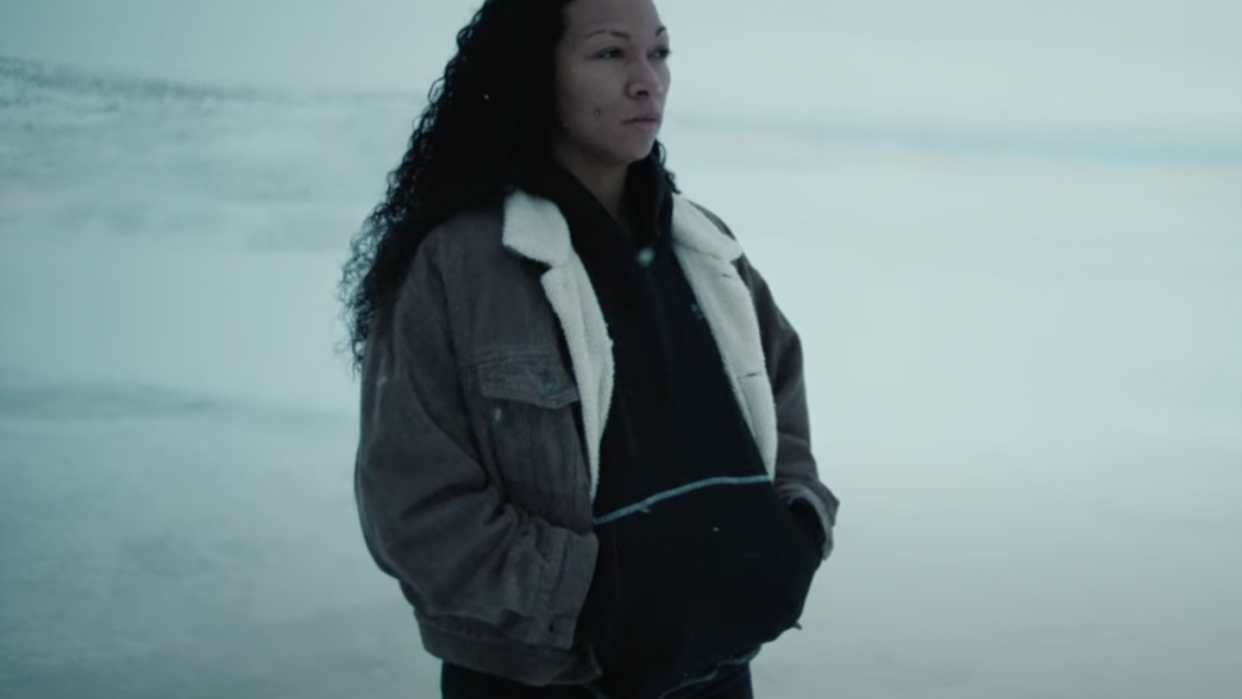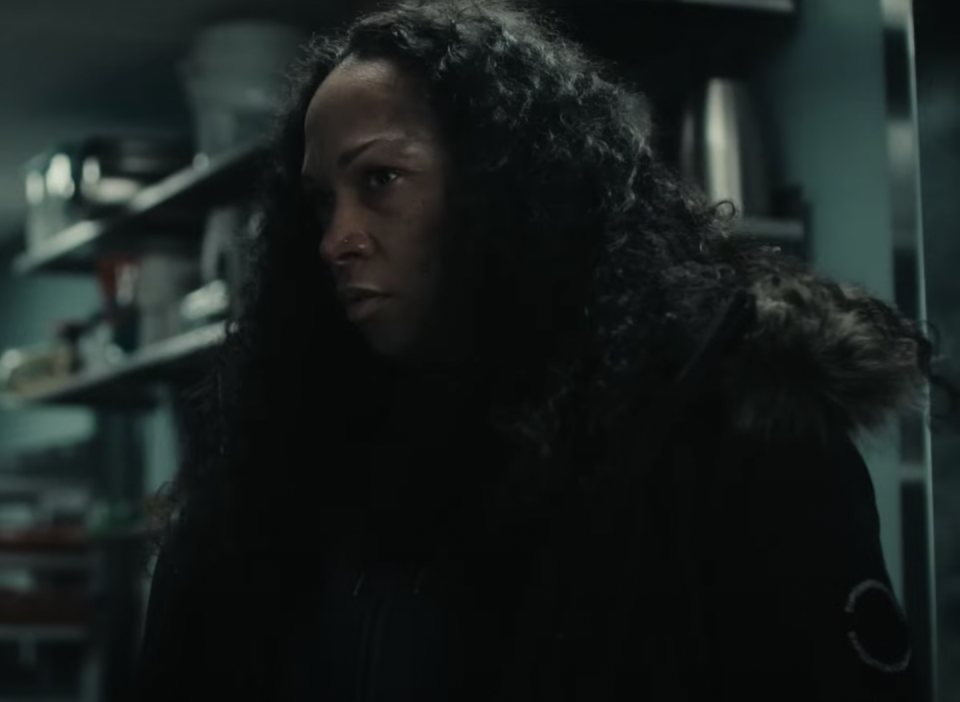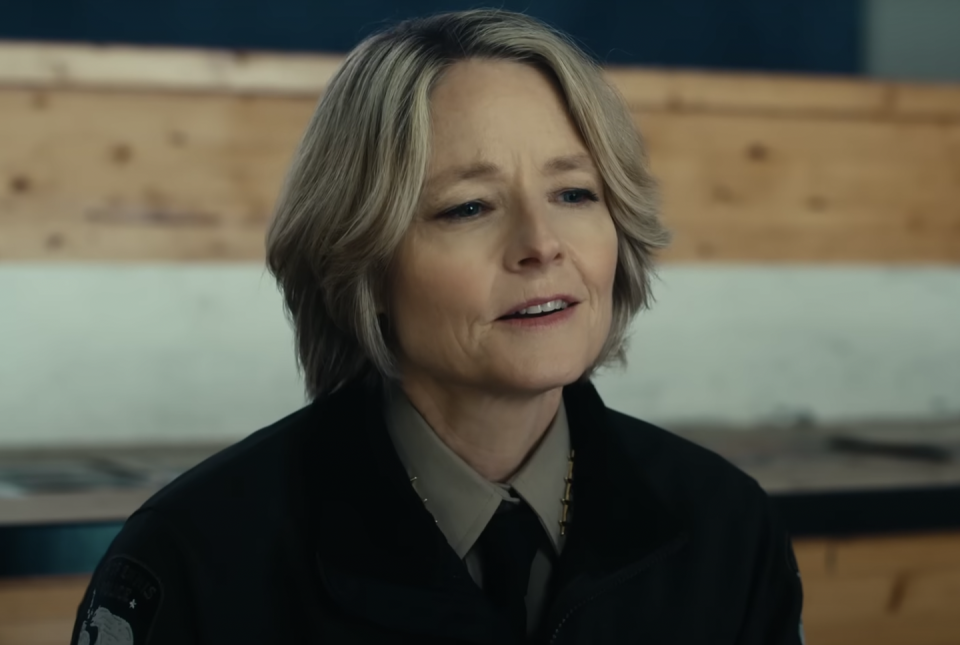What an Alaskan Psychologist Thinks of 'True Detective Night Country'

Breathe a sigh of relief, fellow detectives: True Detective Night Country delivered a damn good season finale. Somehow, showrunner Issa López tied a bloodstained bow on all of the plot threads that plagued us this season. But she still left a few gnawing questions. What happened to Navarro? Is Rust Cohle's undead daddy trolling around Ennis? Who was in Liz Danvers' fantasy football lineup?!
Here at Esquire, we're always trying to dig up answers. So we asked ourselves: What would Liz Danvers do? Well, she would ask an expert the right questions. Who better to explain the mental effects of endless nights than a licensed Alaskan psychologist? Kevin Tarlow, Assistant Professor of Psychology at the University of Anchorage Alaska, helped us piece together some of the more unfathomable parts of Night Country. Hallucinations, mass psychosis, and the wonders of Jodie Foster—we explored it all. This conversation has been edited for length and clarity.
ESQUIRE: Tell me a little bit about what it's like to live through Alaska's endless nights in the winter.
KEVIN TARLOW: Due to our extreme latitude, we get really long nights in the winter and really long days of sunlight in the summer. In Anchorage, it could be 20 hours of daylight in the middle of summer, or 20 hours of darkness in the deepest part of winter. Ever since moving here, I don't know that I've ever felt so in tune with the rhythms of nature and seasonal changes. Our bodies know when it's dark and cold—and we want to hibernate. So, it's very odd getting up in the morning and going to work, when it could be dark for hours. By the time I'm going home at the end of the day, it's still dark. It can be mentally straining to live that way.
For thousands of years, Alaska Natives experienced winter in a very different way than we do now. It's disorienting for us to watch the residents of Ennis go about their lives and their jobs as if the world around them isn't asleep. It's maintaining a pattern of daily living that is at odds with nature. In the traditions of indigenous peoples all across the Arctic, you learn that winter is a time of rest—people gather, share food, and tell stories. We should consider how the stress of our demanding, work-centered lifestyles causes us to always be disconnected from the rhythms of nature and might contribute to problems like seasonal depression.

Are there any other mental health conditions that can be affected by the lack of daylight?
Depression is the one we think about when we think about seasonal mental illnesses. But we do know other disorders that can be affected by seasonal patterns, including bipolar disorder. Somebody could experience depression or a low mood in the winter—and also have problems with mania or heightened intense mood during summer months.
People joke in Alaska that everybody gets kind of manic in the summer when it's 20 hours of daylight, nobody is sleeping, and we're all trying to get everything done. Our lifestyles really shift a lot here.
Do people actually hallucinate during long periods of night?
Hallucinations—or what we might call psychotic symptoms—are when people's sense of reality is impaired. So that would be a pretty severe symptom of depression. There's a relationship between stress and symptoms of mental illness, including hallucinations. The show uses these symptoms to create suspense—but the hallucinations that the characters experience wouldn't be the typical symptoms of seasonal depression.
Do you feel like Night Country accurately portrays mental illness? Navarro and her sister, Julia, experience suicidal ideation and question their mental health.
One of the things I've really appreciated about the show is how they have portrayed the difficulties of living in a place like Ennis. It's a real challenge in Alaska, where we have so many people living in rural and remote communities that don't have good access to high-quality health services. In terms of Navarro's sister, Julia, I see her apprehension about receiving services as an Alaska Native woman. Will the services that she accesses be culturally sensitive and appropriate? I appreciate how the show has portrayed some of those more nuanced issues.
Some characters in Night Country experience truly spiritual visions—and others experience hallucinations as mental-health symptoms. As a doctor, how do you navigate when someone tells you they're seeing visions?
People have experienced a connection to what you can call spirits—or an afterlife—far longer than there's been psychology. As a psychologist, my number-one concern is: How do I help this person function and live a good life? That doesn't mean I have to believe or disbelieve their experiences.
I've worked with patients that have what may seem like strange beliefs or experiences, but I don’t know if it’s helpful to have an opinion about whether or not it's real. That's a different question than, "How can I help you?" If those visions are making it hard for you to function, then that's something we can problem-solve together. But if it's something that isn't causing you problems—and gives you a sense of meaning—then who am I to treat that as a problem?
When Rose saw her ex-lover in the ice, was she having hallucinations? Is that something that needs to be treated? I saw her experience as somebody who has a connection with her dead partner. That's a source of strength, guidance, and comfort. As a psychologist, I wouldn't feel the need to offer treatment for that.
Can you speak a little bit about the idea of mass hallucinations? One of the biggest Night Country fan theories is that characters' spirits and visions were a symptom of mass hallucination in Ennis.
There have been many well-documented instances of what we call mass hysteria or mass psychogenic illness. These are interchangeable terms for a phenomenon where a community—usually one that's been under a lot of stress—experiences physical symptoms and behaviors that are not easily explainable. There's been centuries of recorded incidents like this, where there is an outbreak of strange behavior, unexplainable experiences, and physical symptoms that seem to illustrate our ability to influence one another psychologically.

Is that what happened in Ennis?
There is research on the possibility of a relationship between what's happening more broadly in society and how that's experienced in a community, in a way that could cause mass hysteria. These symptoms a community experiences—like seeing spirits or auditory hallucinations—can spread and reflect the fears and anxieties in that community.
One of the things that I notice in Night Country is how the different characters interpret and respond to those hallucinations or visions. Some people aren't bothered—and some people are. That reaction is important from a psychologist's perspective, understanding what is the person's experience of the hallucination. In mass hysteria events, the people experiencing those odd, unexplainable symptoms are usually quite troubled by the symptoms. That's a commonality across a lot of those recorded incidents. When I think about the people in Ennis who are experiencing it, most don't seem troubled by what they see.
Could you talk about intergenerational and cultural trauma—and how that affects Alaska Natives, like those portrayed in Night Country?
We know that traumatic experiences disrupt communities, affects how people take care of one another, and in that way is passed down through generations. The way that the white characters from outside of Alaska wield power in these communities is very harmful to the indigenous people whose roots are in that place. Most indigenous people and most people of color are still dealing with racism, exploitation, dispossession, and displacement. Even if you're not, you can still carry the traumas of your parents, grandparents, and ancestors. That can affect physical health and mental health. It affects our relationships with one another and our relationships to the natural world. It is something that's very present here in Alaska—the past, present, and future effects of colonialism. That's a major focus of the psychology department here at University of Alaska Anchorage. I work with colleagues and students on how to meet the needs of rural and Native people.
That sounds like you've got a lot of work cut out for you.
Right. That's why we're always tired—and because it's dark all the time. [Laughs.]
Does anyone manage their mental health well in Night Country?
Liz Danvers is a frustrating character—but Jodie Foster, you gotta love her no matter what. As a psychologist, we talk about realistic goals for the people that we serve. If she was my patient, I might think, What realistic changes can we expect her to make? Her character clearly is carrying so much grief. When people don't allow themselves to feel grief after a loss, it can cause so many problems. I hope that a realistic goal for her character: Let yourself grieve.
You Might Also Like


